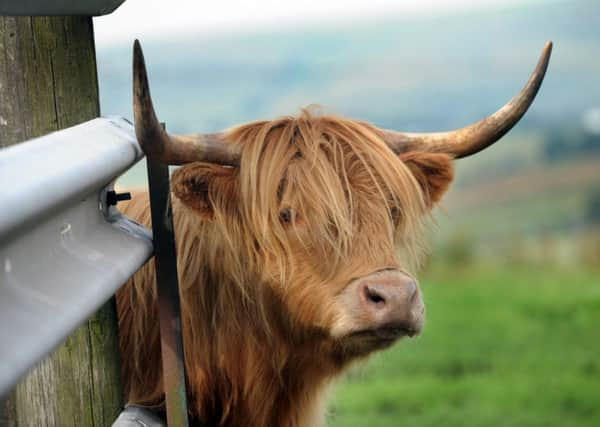‘Up the stakes to rid cattle of costly disease’


As many as half of the national herd is effected by bovine viral diarrhoea (BVD), a disease which experts say is extremely expensive and time consuming for farmers to deal with. It leads to poor fertility and lowers a cow’s immunity system making them prone to respiratory and other infectious disease.
Vaccinations help control the disease but it cannot eradicate BVD in infected stock.
Advertisement
Hide AdAdvertisement
Hide AdTo deal more effectively with the disease, Chris Mallon, national director of the National Beef Association, wants the Government to introduce measures which were ushered in north of the border at the start of the year.
In Scotland, new controls restrict the movement of infected animals and place temporary restrictions on holdings that fail to test for the disease. Farmers are also required to declare the BVD status of their cattle prior to any movement from the herd.
In Ireland, cattle identified as persistently infected (PIs) are culled.
England is playing catch up, Mr Mallon says. Defra is co-funding the Bovine Viral Diarrhoea steering group, a national industry initiative which helps vets and farmers to maintain herds free of the disease and has trained over 5,000 people in the last 15 months.
Advertisement
Hide AdAdvertisement
Hide AdMr Mallon told The Yorkshire Post: “BVD costs to the herd are estimated to be of £100 per beef cow in lost performance and infertility. When margins are so tight BVD eradication should be a goal of any suckler producer.
“Anything that has an impact on production reduces our ability to secure our food supply and BVD definitely does that.
“We are in a world with a growing demand for high quality food and so our ability to import will reduce as other countries compete with us.
“I would support a program the same as Scotland, it is proven that the removal of PIs is crucial to eradication.
Advertisement
Hide AdAdvertisement
Hide Ad“BVD will continue to be a drain on the efficiency of our production until we have it under control, it is a disease that we can deal with, we just need the willingness to be ruthless in its elimination.”
Richard Findlay, the region’s livestock board chairman at the National Farmers’ Union, said: “It’s a big problem for the industry and we need all our cattle to be free of BVD. It’s quite prevalent within the national herd for both dairy and beef cattle and it would be great to see a step up in initiative shown to have something similar for England as there is in Scotland.
“I don’t know why we have been so slow to react. The benefits to the industry of setting controls and eradicating BVD are huge - up to 50 per cent of the national herd is affected by the disease.”
Asked whether England should replicate Ireland’s policy of culling PIs, Mr Findlay, who farms at Westerdale near Whitby, said: “That would be a necessity of any scheme. There is no good testing, finding they are positive for the disease and doing nothing. They are four-legged virus factories and even though the rest of the herd is vaccinated, PIs are still shedding virus and you would constantly have younger animals which wouldn’t thrive. It’s a no-brainer really.”